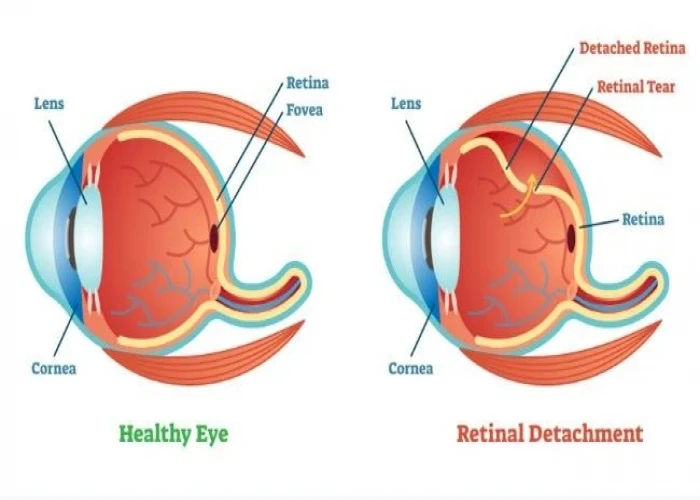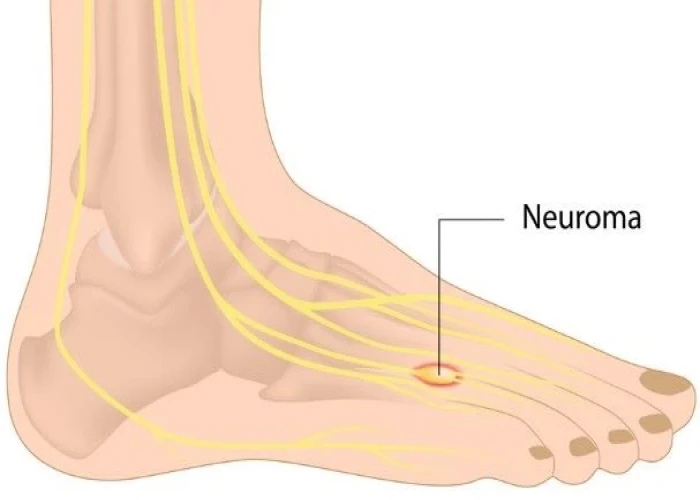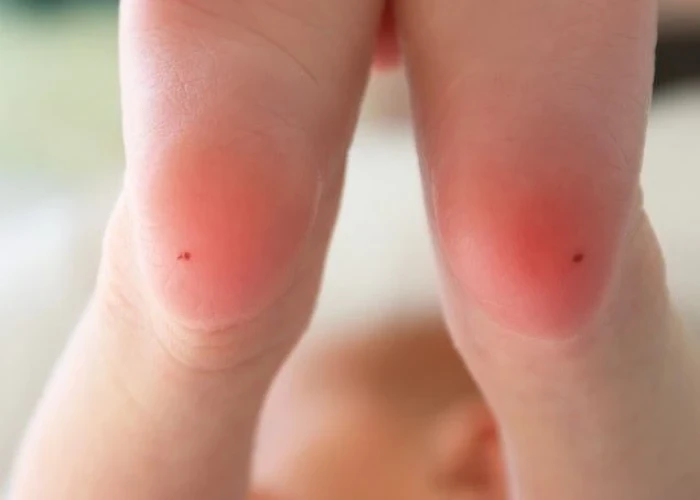 Welcome
Welcome
“May all be happy, may all be healed, may all be at peace and may no one ever suffer."
Phenylketonuria (PKU)

Phenylketonuria (PKU) is an inherited disorder that affects the way the body processes a specific amino acid called phenylalanine. People with PKU are unable to properly break down phenylalanine, which can build up to harmful levels in the body and lead to intellectual disability and other health problems if left untreated.
PKU is caused by a deficiency of an enzyme called phenylalanine hydroxylase, which is needed to convert phenylalanine to other amino acids that the body can use. As a result, phenylalanine and its byproducts can accumulate in the blood and cause damage to the brain and other organs.
Symptoms of PKU can vary, but may include intellectual disability, developmental delay, seizures, skin rashes, and behavioral problems. These symptoms can be prevented or minimized with early detection and treatment.
The main treatment for PKU is a lifelong low-phenylalanine diet, which involves avoiding foods that are high in protein, particularly those containing the amino acid phenylalanine. This diet must be strictly followed to prevent the accumulation of phenylalanine in the blood. In addition, individuals with PKU may need to take a special formula or supplement to ensure that they receive all the necessary nutrients.
Testing for PKU is usually done in the first few days of life as part of routine newborn screening. Early detection and treatment can prevent or minimize the symptoms of PKU and help affected individuals live healthy life.
Research Papers
Disease Signs and Symptoms
- Breath sweet odor
- Neurological problems that may include seizures
- Skin sores, bruising or rashes
- Eczema
- Small head (microcephaly)
- Behavioral, emotional and social problems
- Fair skin and blue eyes, because phenylalanine can't transform into melanin the pigment responsible for hair and skin tone
Disease Causes
Phenylketonuria (PKU)
A defective gene (genetic mutation) causes PKU, which can be mild, moderate or severe. In a person with PKU, this defective gene causes a lack of or deficiency of the enzyme that's needed to process phenylalanine, an amino acid.
A dangerous buildup of phenylalanine can develop when a person with PKU eats protein-rich foods, such as milk, cheese, nuts or meat, and even grains such as bread and pasta, or eats aspartame, an artificial sweetener. This buildup of phenylalanine results in damage to nerve cells in the brain.
Inheritance
For a child to inherit PKU, both the mother and father must have and pass on the defective gene. This pattern of inheritance is called autosomal recessive.
It's possible for a parent to be a carrier — to have the defective gene that causes PKU, but not have the disease. If only one parent has the defective gene, there's no risk of passing PKU to a child, but it's possible for the child to be a carrier.
Most often, PKU is passed to children by two parents who are carriers of the disorder, but don't know it.
Disease Prevents
Phenylketonuria (PKU)
If you have PKU and are considering getting pregnant:
- Follow a low-phenylalanine diet. Women with PKU can prevent birth defects by sticking to or returning to a low-phenylalanine diet before becoming pregnant. If you have PKU, talk to your doctor before you start trying to conceive.
- Consider genetic counseling. If you have PKU, a close relative with PKU or a child with PKU, you may also benefit from genetic counseling before becoming pregnant. A doctor who specializes in medical genetics (geneticist) can help you better understand how PKU is passed through your family tree. He or she can also help determine your risk of having a child with PKU and assist with family planning.
Disease Treatments
The main treatment for PKU includes:
- A lifetime diet with very limited intake of protein, because foods with protein contain phenylalanine
- Taking a PKU formula — a special nutritional supplement — for life to make sure you get enough essential protein (without phenylalanine) and nutrients that are crucial for growth and general health
A safe amount of phenylalanine differs for each person with PKU and can vary over time. In general, the idea is to consume only the amount of phenylalanine that's necessary for normal growth and body processes, but no more. Your doctor can determine a safe amount through:
- Regular review of diet records, growth charts and blood levels of phenylalanine
- Frequent blood tests that monitor phenylalanine levels as they change over time, especially during childhood growth spurts and pregnancy
- Other tests that assess growth, development and health
Your doctor may refer you to a registered dietitian who can help you learn about the PKU diet, make adjustments to your diet when needed, and offer suggestions on ways to manage PKU diet challenges.
Which foods to avoid
Because the amount of phenylalanine that a person with PKU can safely eat is so low, it's crucial to avoid all high-protein foods, such as:
- Milk
- Eggs
- Cheese
- Nuts
- Soybeans
- Beans
- Chicken
- Beef
- Pork
- Fish
Potatoes, grains and other vegetables that have protein will likely be limited.
Children and adults also need to avoid certain other foods and beverages, including many diet sodas and other drinks that contain aspartame (NutraSweet, Equal). Aspartame is an artificial sweetener made with phenylalanine.
Some medications may contain aspartame and some vitamins or other supplements may contain amino acids or skim milk powder. Check with your pharmacist about the contents of over-the-counter products or prescription medications.
Talk with your doctor or registered dietitian to learn more about your specific dietary needs.
Formula for people with PKU
Because of the restricted diet, people with PKU need to get essential nutrients through a special nutritional supplement. The phenylalanine-free formula provides protein and other essential nutrients in a form that's safe for people with PKU.
Your doctor and dietitian can help you find the right type of formula.
- Formula for babies and toddlers. Because regular infant formula and breast milk contain phenylalanine, babies with PKU instead need to consume a phenylalanine-free infant formula. A dietitian can carefully calculate the amount of breast milk or regular formula to be added to the phenylalanine-free formula. Parents introduce solid foods with low levels of phenylalanine to children with PKU on the same schedule used for other infants.
- Formula for older children and adults. Older children and adults continue to drink or eat a protein substitute formula daily, as directed by a doctor or dietitian. Your daily dose of formula is divided between your meals and snacks, instead of consumed all at once. The formula for older children and adults is not the same as the one used for infants, but it works on the same principle. It provides essential protein (amino acids) without phenylalanine and is continued for life.
The need for a nutritional supplement, especially if your child doesn't find it appealing, and the limited food choices can make the PKU diet challenging. But families need to make a firm commitment to this lifestyle change because it's the only way to prevent the serious health problems that people with PKU can develop.
Neutral amino acid therapy
Another possible addition to the PKU diet is a supplement called neutral amino acid therapy in powder or tablet form. This supplement may block some absorption of phenylalanine. This may be a treatment option for adults with PKU. Ask your doctor or dietitian if this supplement is appropriate for your diet.
PKU medication
The Food and Drug Administration (FDA) has approved the drug sapropterin (Kuvan) for the treatment of PKU. It works by increasing your tolerance to phenylalanine. The drug is for use in combination with a PKU diet. But it doesn't work for everyone with PKU.
In approving sapropterin, the FDA directed that studies continue because there are no long-term studies on the drug's efficacy and long-term safety.
Disease Diagnoses
Disease Allopathic Generics
Disease Ayurvedic Generics
Disease Homeopathic Generics
Disease yoga
Phenylketonuria (PKU) and Learn More about Diseases

Pregnancy Abodominal Pain

Retinal detachment

Polyhydramnios

Low blood pressure (hypotension)

Benign adrenal tumors

Morton's neuroma

Alcoholic hepatitis

Scorpion sting
Phenylketonuria, pku, ফেনাইলকেটোনুরিয়া, পিকেউ
To be happy, beautiful, healthy, wealthy, hale and long-lived stay with DM3S.
